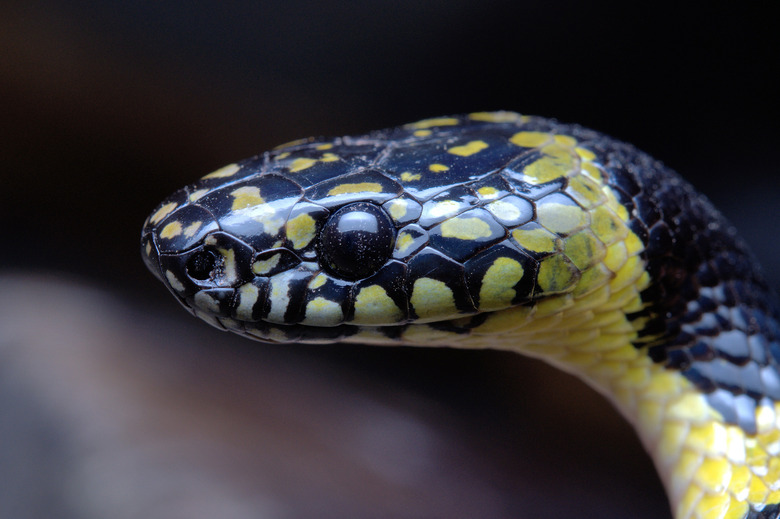This Common Blood Thinner Can Be An Antidote To Deadly Cobra Venom
A breakthrough discovery from a team of scientists scattered around the globe might soon help prevent death from exposure to cobra venom and other snake venoms. The researchers found that a common drug widely used as a blood thinner to prevent clotting can also bind to cytotoxins in the venom, thus preventing it from damaging tissue and potentially killing the victim of a bite.
The drug is called Heparin, and it's used to prevent the risk of blood clots forming inside blood vessels. Blood clots can cause heart attacks and strokes.
This new discovery could lead to an affordable way to treat and cure cobra venom exposure. Heparin is widely available and inexpensive compared to standard anti-venom drugs that have limited use.
The team of researchers says that about 138,000 people die every year from snakebites. Another 400,000 develop necrosis, a condition where the tissue around the bite dies. Necrosis can lead to other debilitating side effects like amputations.
Most of the affected people come from poorer rural areas in Africa or South and Southeast Asia. Cobras account for most bites in Africa and India. Therefore, heparinoid drugs can become an alternative to current cobra venom antidotes.
Blood thinners can work against multiple types of venom, compared to antivenoms, which usually target a single snake species. Moreover, the heparinoids (Heparin, Tinzaparin, and Dalteparin) would prevent necrosis, while the antivenoms wouldn't. The antivenoms might be more expensive and harder to come by in regions where cobras bite the most people.
The researchers used whole-genome CRISPR knockout (KO) screening to find the human genes involved in cell responses to cobra venom. That's how they discovered that heparinoids like Heparin would bind to three-finger cytotoxins (3FTxs) in the venom. As a result, the cytotoxin would not bind with cell surfaces, reducing necrosis.
"Biological agents like venoms and toxins all require some collaboration from the host side, the human side, so our study was to identify what, in humans, interacts with the venom to create this necrosis and death," senior study author Prof Greg Neely told the BBC.
The scientists then injected mice with cobra venom and administered heparinoids intradermally or under the skin to observe the effects. The former was the more effective route for reducing necrosis lesions, but injecting Heparin under the skin was also an alternative.
The researchers determined that the best time to get the treatment is within an hour after a cobra bite. The faster the Heparin shot, the better this cobra venom cure would work.
Human trials must be successful before Heparin-type drugs can be used worldwide as a cobra venom antidote. That's the next step in utilizing these blood thinners as potential cures for deadly conditions.
That said, these findings only cover cobra bites. Other snake venom might need other types of therapies. However, one of the key takeaways from the study is that genetic testing can help doctors determine the best molecules to use as venom inhibitors so they can find better antidotes for other snake species.
The full study is available in Science Translational Medicine.
